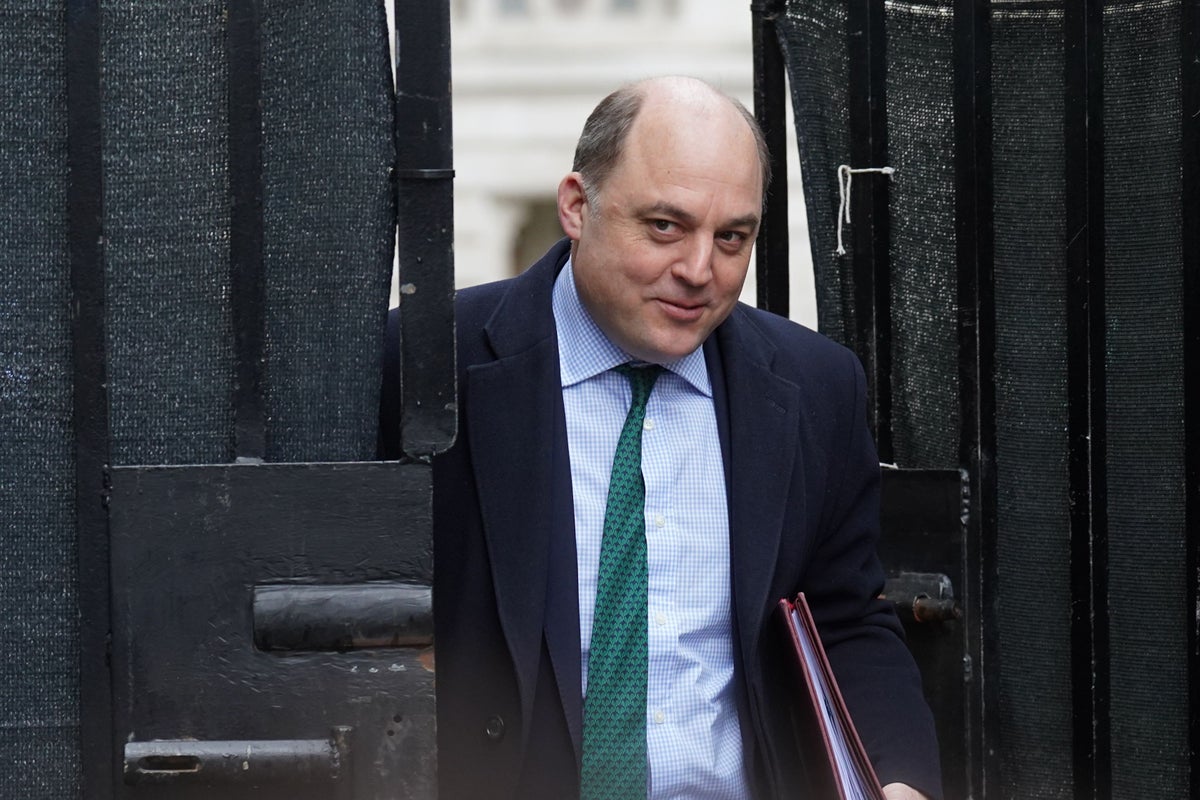
Defence Secretary Ben Wallace said he was interested in delivering for the armed forces and appeared to suggest he was not thinking about resigning when asked about rumours he might quit.
His comments follow reports that he had threatened to resign if he did not get a commitment to raise defence spending to 3% of GDP by 2030.
Mr Wallace has previously denied that he threatened to resign if the 3% commitment was not met.
The Government’s refreshed integrated review, published on Monday, confirms plans announced overnight to increase defence spending by £5 billion over the next two years, with an “aspiration” to raise it to 2.5% of national income “as fiscal and economic circumstances allow”.
The threat is going up across the world, we’re more anxious, more unstable, and I think that means long-term investment on whoever is the governments over the next 10, 15 years— Ben Wallace
Speaking during a session of defence questions in the Commons, Labour MP Barry Sheerman (Huddersfield) said: “I will urge him today that he must not do what people are rumouring he might do given the present situation that he might be thinking about resigning – will he stay with us, but fight for more money for our armed forces?”
Mr Wallace said: “As a Tory, you think about resigning most of the time.
“I’m not interested, I’m interested in trying to – over the years – I’m interested in trying to deliver for our men and women in the armed forces.
“I went into politics because the men and women in the armed forces needed better, deserved better, and I’m determined to try and stick that through.”
He added he is “worried about the direction of threat for this country and for the world”, adding: “The threat is going up across the world, we’re more anxious, more unstable, and I think that means long-term investment on whoever is the governments over the next 10, 15 years.”
Elsewhere in the session, a number of Tory backbenchers raised concerns over the plans for defence spending.
Conservative Richard Drax (South Dorset) said: “The £5 billion is not sufficient to ensure our core Armed Forces are properly equipped and prepared for, God forbid, something that we all dread as the world totters towards world war three potentially.
“Would he agree with me, perhaps ask, what on earth is going through the mind of the Treasury officials?”
Tory MP for North Wiltshire James Gray told the Commons: “The £5 billion is disappointing, particularly if £3 billion goes to Aukus and £1.9 billion goes to filling up our warehouses. It actually means a cut in defence spending rather than increasing it.”
And Conservative MP Danny Kruger said “we must do more than simply resupply our armed forces”.
Mr Wallace told the Commons: “The defence spending is no longer declining as it has done for the last three decades, it is on the upward trajectory.
“Since 2020, it has been on that upward trajectory, this grant of the extra money continues that momentum. That’s incredibly important, I hope to see the headmark in detail be announced soon.”
He also told MPs: “In defence of my colleagues at the Treasury, the Treasury is trying to balance an economic situation post-Covid that means we have to make sure we cut our cloth and make sure that we return to economic credibility that’s so important for growing our tax receipts and our income.
“I think one of the roles I can play is to come to this House and be honest about the state of our Armed Forces, honest about what caused the 30 years of the challenge that both he and I experienced serving in them, and what we can do to fix it.
“The defence command paper will make sure that we are very clear on where we are going to spend the money to make sure that the future is secure for the men and women of the Armed Forces.”
Shadow defence secretary John Healey told the Commons: “In 2010, when Labour left government, we were spending 2.5% of GDP on defence, that’s a level that’s been nowhere near matched in any of the 13 years since.”
Mr Wallace replied: “The thing that we should strive for is that the men and women in the armed forces know that their leaders, their political leaders, are prepared to be clear about the past mistakes and talk about the future with some honesty.
“The National Audit Office report made a view of the Labour Party’s governing of defence. I have it here because colleagues on that side of the House often forget: ‘the department’s poor financial management has led to severe funding shortfall of up to £36 billion in defence spending over the next 10 years’.”
Shouts of “it’s not true” could be heard coming from the Labour benches.







